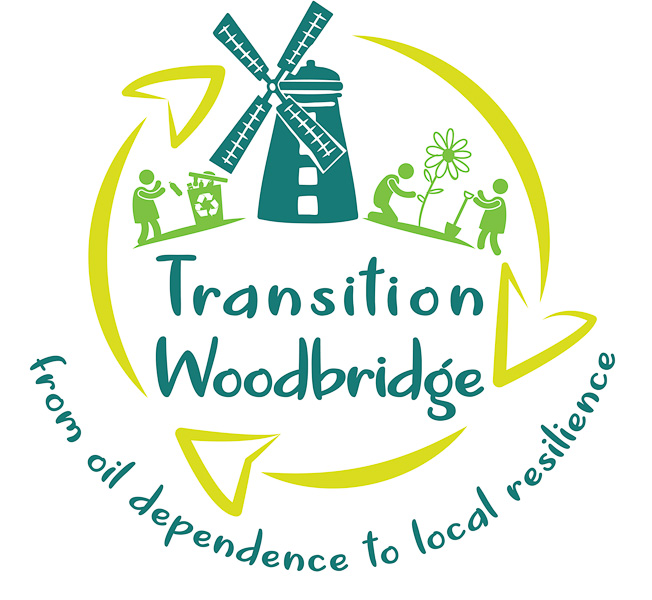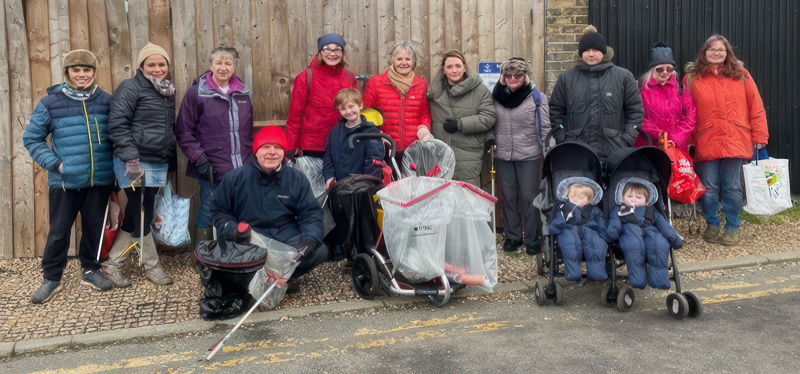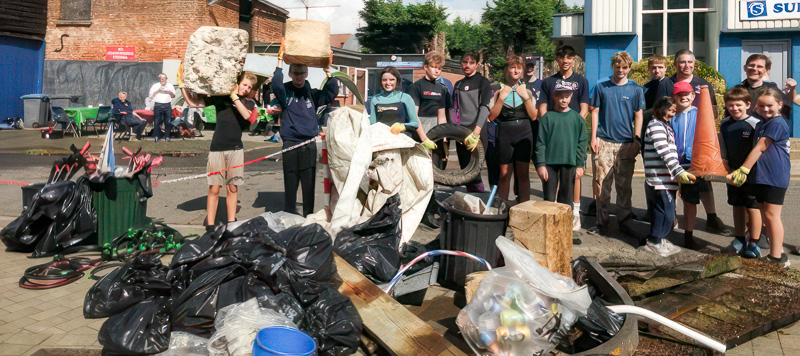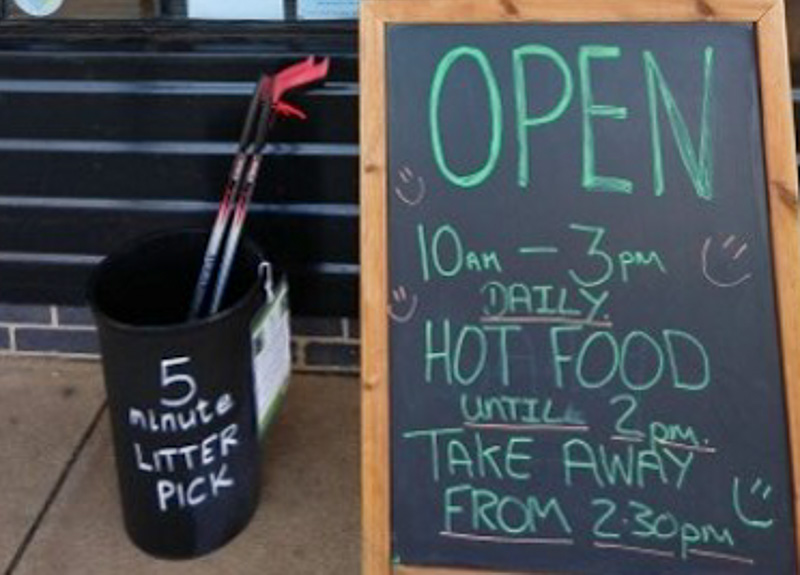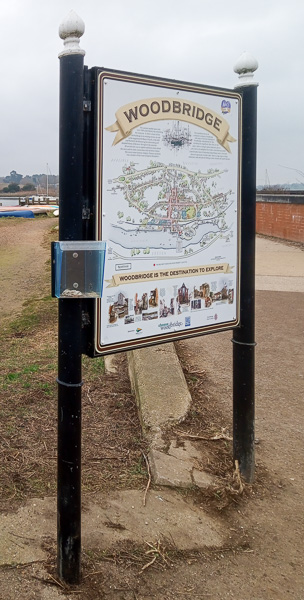By Julia Jones
Transition Woodbridge is a name that keeps popping up. They’ve reminded us to publicise the ‘Great British Spring Clean’ and we’ve been working together with them and other organisations on ‘river cleans’ as part of the plastic prevention project. I hear about their Repair Cafes, I notice people in gardening clothes in the boatyard, clutching shrubs. Who are these people and what’s the ‘Transition’ they are seeking?
I asked a Transition Woodbridge team member called Jessica who gave me their mission statement and sent me to their website https://transitionwoodbridge.org.uk/
Transition Woodbridge is a community-led group that aims to strengthen the local economy, reduce the cost of living and prepare for a future with less oil and a changing climate. Transition works by bringing people together to discuss the problem and then to create their own collective story of the future they would like to see. A positive story of a positive future that then leads on to positive and achievable local action. Transition is not a set of answers. There are no guidelines. No rigid rules. Every community has to create its own vision and define its own priorities.
This sent me on to learn about the wider ‘Transition’ movement. https://transitionnetwork.org/ Transition Woodbridge as part of a global network of self-organising communities working according to shared principles. They are seeking a low-carbon, socially just future with resilient communities, more active participation in society, and caring culture focused on supporting each other.
In practice this means setting up renewable energy projects, re-localising food systems, and creating community and green spaces. They are looking for cultural and mindset changes that support social and environmental change. They are also repairing and re-skilling.
The Transition movement is represented in 48 countries and you won’t be surprised to learn that there are some notably blank spaces on their world map. In fact, more than a third of the groups (446 of 1126) are in the UK. There seem to be about seven in Suffolk: at Sudbury, Bures, Lavenham, Framlingham (2), Saxmundham and Woodbridge. https://transitionnetwork.org/transition-near-me/
Looking again at what’s happening in Woodbridge, I find a big emphasis on litter-picking and the ‘hidden army of superheroes” which includes the RDA. I don’t live in Woodbridge so hadn’t known about the Sunday Rubbish Walks nor the Melton Wombles. This information is on their website and they also make good use of a Facebook page.
The 5 minute litter pick stations sound like a good idea. These are local businesses (including cafes such as HMS Vale, the Whistlestop, the Tea Hut, the Pavilion on Kingston Fields which have litter-pickers and buckets ready for use. If you or I see a piece of litter that’s annoying us, we can pick it up mechanically, put it in the bucket provided then pop it in a council bin. Of course we all agree that it would be better if it hadn’t been dropped in the first place but ‘we are where we are’ as my youngest son says often and irritatingly.
Transition Woodbridge volunteers are creating mini-nature reserves in ‘unloved corners’ and are supporting the Suffolk County Council’s ‘feed the bees’ non-mowing approach in certain areas. They also pick fruit that might otherwise go to waste and either distribute it to local lunch clubs or make it into jam or chutney. There’s an apple pressing day which sound rather good and both volunteers and trees are needed. They support the Woodbridge Library Edible Garden encouraging people to make the link between growing and eating.
Generally, there’s an anti-food waste approach which is likely to appeal to people of my age, born when rationing was still in existence. It’s also respectful when we consider how many people are struggling to eat well today. I noticed too, that Transition Woodbridge have been supporting the 5th Woodbridge Sea Scouts with their ‘warm places’ project over the past months.
We can all support each other’s community initiatives — if only by sharing information. RDA members will have noticed our membership secretary Moray publicising the local Repair Cafes in his ‘Bits and Bobs’ mailings to members. The idea is that people bring along small things that might need sewing, gluing or soldering and are helped to mend them rather than throw them away. These cafes take place approximately fortnightly at a variety of venues in Melton, Martlesham and Woodbridge. People can also be directed to local businesses who have specialist expertise. Moray has recently drawn attention to the Suffolk Repair Shed (Unit 15, Martlesham Creek, Sandy Lane, Woodbridge) https://suffolkrepairshed.org/ Finally people can be told when there really is no alternative but to ‘bin it’.
Reading though the Transition website suggests ways of looking at the urban and suburban environment with new eyes. Although I loved their idea of developing wildlife corridors, based on Felixstowe’s ‘Community Nature Reserve’, I was about to grumble that not all wildlife are equally welcome. (I’ll admit I was thinking of rats.) But then I visited the Transition Woodbridge Facebook page and saw a plea to let wasps do their work. Perhaps that’s a reminder that things do have a place and what matters most is maintaining a balance.
The Transition Woodbridge website included a report of a tree walk to raise awareness of the rare and magnificent trees scattered throughout the town which we might otherwise ignore. The day may come when they need our protection.
I hope this heightened awareness of the environment is also something we also achieve in our articles about the river, published in the RDA Journal (here on the website) and our twice-yearly magazine. Consider the series of in-depth bird studies which Sally Westwood has produced — or Richard Verrill’s fish surveys, Guy Padfield’s butterfly observations (forthcoming in Deben #66) and Stephanie Perks’s special pleading for the joys of creepy-crawlies. There’s also our forthcoming otter watch programme. The attitude which we share with Transition Woodbridge – and why we are able to work in appropriate partnerships on occasion – is that we are not just observing the environment in a detached way, but doing our best to make a positive difference and to get involved where we can.
Reading about Transition Woodbridge’s approach to ‘forgotten corners’ and their anti-waste / re-use, re-cycle approach reminded me that I have back numbers of the Deben magazine to share. Then I noticed this ideally sized box on a corner near the railway bridge as I walked down the river wall from the Ferry Quay…
Next time you pass that way I hope you will notice a Deben magazine there. Please take one and read it. Then you can either return it to the box or pass it to a friend.
Thanks, Transition Woodbridge, for your inspiring approach.
Julia Jones is the editor of the magazine The Deben. Her most recent book, Uncommon Courage: The Yachtsmen Volunteers of World War Two, was published by Adlard Coles on March 17th 2022. In October 2022 she published Voyage North, the final volume in her Strong Winds adventure series. It begins off the coast at Bawdsey but finishes off Russia’s Kola Peninsula.

